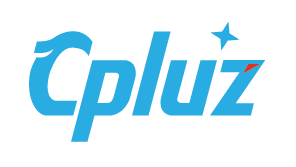Starting a podcast is an exciting venture, and with the increasing popularity of this medium, it’s essential to choose the right hosting platform for your show. The right hosting can significantly impact the growth and success of your podcast. In this comprehensive guide, we will discuss various factors to consider when choosing a podcast hosting provider.
First, let’s understand what podcast hosting is and why it’s crucial. Podcast hosting refers to the service that provides storage, bandwidth, and delivery of your audio files to listeners via RSS feeds. A good podcast host offers reliable, secure, and fast file delivery, ensuring a seamless listening experience for your audience.
1. Storage Capacity:
The first consideration when selecting a podcast hosting provider is the amount of storage you require. The size of your episodes will determine how much storage space you need. As a rough estimate, most podcasts range from 30MB to 250MB per episode. If you produce multiple shows or have long episodes, you might need more storage capacity.
2. Bandwidth and Delivery:
Bandwidth refers to the data transfer rate between your server and the listener’s device. A high bandwidth ensures that listeners can download or stream your podcast seamlessly, regardless of their location or internet connection speed. Look for a hosting provider that offers unlimited bandwidth or sufficient bandwidth to accommodate your audience size.
3. Security:
Security is an essential aspect of any online platform, including podcast hosting. Ensure that the hosting provider you choose implements robust security measures such as SSL certificates and regular backups. This will protect your content from being hacked or lost due to unexpected events.
4. Compatibility with Podcast Directories:
Another crucial factor is compatibility with popular podcast directories like Apple Podcasts, Google Podcasts, Spotify, and Stitcher. Most hosting providers offer automatic submission to these directories, but it’s essential to confirm this before signing up. Additionally, you can manually submit your RSS feed to any additional directories that aren’t automatically supported.
5. Analytics and Statistics:
Analytics provide valuable insights into listener demographics, geographic location, episode downloads, and other essential metrics. This data helps you understand the performance of each episode, engage with your audience more effectively, and identify trends for future content creation. Look for a podcast hosting provider that offers comprehensive analytics and makes it easy to access this information.
6. Monetization:
If monetizing your podcast is part of your strategy, consider a hosting provider that supports monetization through options like dynamic ad insertion or custom pre-rolls. These features allow you to serve targeted ads based on listener data and demographics, increasing revenue potential.
7. Support and Customer Service:
Lastly, excellent support and customer service are essential for addressing any issues promptly. Look for a hosting provider that offers responsive, reliable, and knowledgeable customer support. Additionally, consider the availability of resources like tutorials, FAQ sections, or user-friendly interfaces to help you navigate the platform effectively.
In conclusion, when choosing the right podcast hosting for your show, consider factors such as storage capacity, bandwidth, security, compatibility with directories, analytics, monetization options, and customer support. Doing your due diligence in selecting a reputable and reliable podcast host will provide a solid foundation for growing your audience and achieving long-term success with your podcast.

